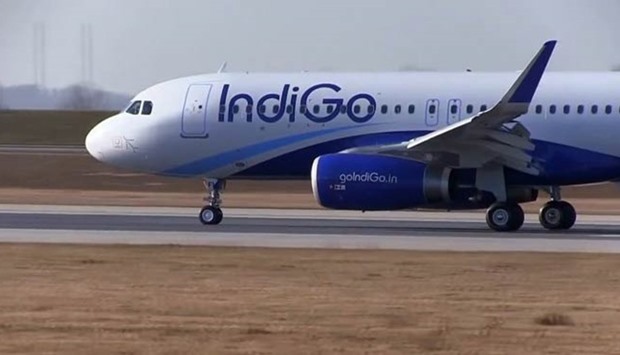India's largest airline IndiGo on Tuesday announced a deal to buy 50 small planes from French manufacturer ATR as it eyes a growing domestic market for first-time flyers.
IndiGo will use the turboprop fleet to fly new regional routes opened under a government plan to connect rural India with the cities, the airline said in a statement."In support of our Honourable Prime Minister Shri Narendra Modi's UDAN vision, we are embarking on a journey to build a nation-wide regional network and connect cities that have not benefited from the growth in Indian aviation," said IndiGo president Aditya Ghosh.
The company said it would buy the planes from ATR -- Avions de Transport Regional G.I.E -- at a list price of $1.3bn.
The purchase signalled the airline's intention to bid next month for a series of new regional routes being auctioned by the government.
Under the initiative, struggling airports in regional areas would be revived and air travel made more affordable by capping ticket prices at 2,500 rupees ($38) per hour of flying through subsidies and tax incentives.
The first round of bidding in March saw five airlines awarded contracts for new flights between large cities and 70 small towns, nearly half of which have never been reached by plane before.
India's burgeoning middle class is taking to the skies in ever greater numbers, with passenger growth of 23.3% in 2016 according to industry body IATA -- double China's 11.7% increase over the same period.
Low-cost airlines are rushing to expand their fleets to take advantage of that growth.
Experts say India's aviation sector holds vast untapped potential, with just 100mn of its 1.2bn people taking to the skies last year. But woeful infrastructure and high operating costs could threaten expansion.
IndiGo's order gives regional connectivity a "new boost", said Amber Dubey, partner and India head of aerospace and defence at global consultancy KPMG.
"We have always maintained that Indian aviation's next phase of growth will come from its untapped interiors," he told AFP.
By reviving some of the hundreds of disused regional airports -- among them a number of "ghost airports" built but never used -- the government is trying to tackle some of the infrastructure concerns.
Auctions for routes will be conducted twice a year. The winners must start services within six months or face a penalty.

